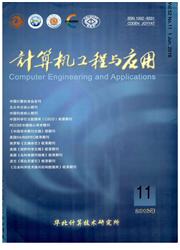

 中文摘要:
中文摘要:
研究认知无线电(CR)网络环境下的稳健发射波束形成问题,以期在信道状态信息(CSI)存在误差时满足一级用户(PU)干扰温度约束和二级用户(SU)信干噪比(SINR)约束,该发射波束的设计目标为发射天线子集最小化和发射功率最小化的联合自适应.用伯恩斯坦型不等式将信道状态信息误差的非封闭形式概率约束转化为线性矩阵不等式,进一步通过引入?0 范数的?1 范数逼近,将目标函数非凸优化松弛为凸问题,并通过迭代重新加权算法求解.仿真结果表明,该方法以少量增加传输功率为代价减少了发射天线的数量,节约了基站成本.
 英文摘要:
英文摘要:
This paper proposes a novel method for joint probabilistic constrained robust beamforming and antenna selection used in Cognitive Radio(CR)networks. Assuming complex Gaussian distributed Channel State Information(CSI)errors, the Bernstein-type inequalities are used to transform the no closed-form probabilistic constrained into the deterministic forms. Moreover, ?1-norm is introduced as the closest convex approximation of ?0-norm. So, the original NP-hard optimal problem can be relaxed to as a tractable convex optimization problem. A computationally efficient and near-optimal solution is obtained by an iteratively re-weighted algorithm. Simulations show that the proposed algorithm meets prescribed service levels at a relatively small excess transmission power in a number of transmitter reduction scenarios.
 同期刊论文项目
同期刊论文项目
 同项目期刊论文
同项目期刊论文
 期刊信息
期刊信息
